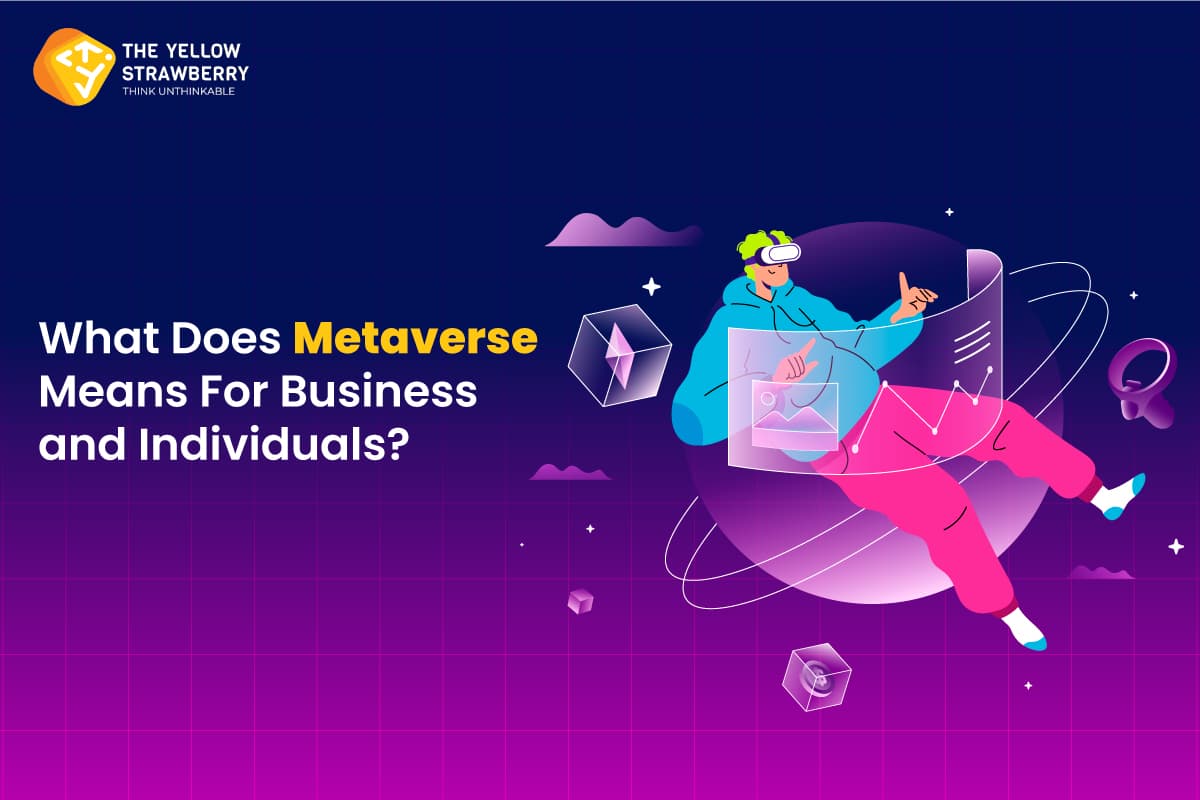The metaverse, which is being called Internet 3.0 by NPR, is a virtual reality platform that can host social media, online games and other apps in the same cyberspace. NPR summarized the metaverse as “the internet brought to life” or “at least in 3-D.”
Although it might seem impossible to many people, the internet of today was created in the 1970s. Social media was a huge part of the 1980s. We’re certain there would be many naysayers by the 1990s if we said that we’d have flying cars in 2022.
It is a fact that technology is constantly evolving and we live in an ever-changing world. It is important to embrace technology and secure your place in the digital world as a business owner. This will help you remain relevant, stay competitive, and retain customers.
Important Players to Keep an Eye on
This new world is being pioneered by big tech — Facebook/Meta at the forefront. Although tech giants such as Google and Apple are likely to keep their physical stores, Microsoft is concentrating on its online presence and has even stated that the company is creating an “enterprise metaverse”.
Virtual Reality Selling
Meta has the potential to fundamentally change the business landscape. This makes it even more important for individual companies to have an online presence. The metaverse offers the chance to increase customer engagement, experience, retention, and satisfaction. One example: All customer service operations could be centralized in one omnichannel space, say with virtual customer avatars, instead of being done over the phone, by email and via chatbots.
One industry that is already on the metaverse train is retail. Imagine being able to shop for new clothes online and putting them on your own back. Nike even plans to sell virtual sneakers as “characters” in this next-generation digital world. The metaverse allows consumers to interact with companies and/or shop for their products in immersive, interactive ways.
Working in Virtual Reality
Many businesses have already had to move their operations online in response to the pandemic and to allow their employees to work remotely. Although the transition was smoother than anticipated, many people have regretted missing the collaboration experience that a video chat grid can provide.
Facebook (sorry Meta) has released the beta version of it’s Horizon Workrooms App to address this issue. It’s described as a “VR space that allows teams to connect, collaborate and develop ideas together.” You can meet your teammates around the table, even from different parts of the globe. This is also a reference to the possibility of training staff in a metaverse.
Virtual Reality: Living in it?
Although the most prominent tech companies are working hard to create this new reality, it is unlikely that it will be realized in its entirety tomorrow. It’s likely not even within the next five years. Although we don’t live in a virtual world, we do exist in one. Now is the time to get your business up to date. Your online presence is key. Learn how to use social media to your advantage and be open to the possibilities of Internet 3.0.
New Spaces To Discover
The metaverse allows people to create new virtual worlds in which they can socialize, trade virtual assets, and even earn revenue. This opens up new opportunities for companies and brands.
Balenciaga and Ralph Lauren are two examples of businesses that have begun to colonize the metaverse in order to sell digital-only fashion products. According to one research, the potential fashion industry’s value is estimated at $50 billion. Nike also reports nearly 7 million visitors to its metaverse-based website “Nikeland” within a matter of months.
This new medium is also being used by content producers, event managers, and advertisers to promote and promote their products and convey their messages. They can also use 360deg or 3D technology to create new types of storytelling.
The metaverse offers new opportunities for consumer experience, in addition to marketing avenues. Metaverse can use virtual reality technology to enable them to test out products from any location in the world, 24/7. Virtual items are shipped worldwide, so there is no need to worry about geographic delivery restrictions.
Virtual “land” within metaverse spaces is becoming increasingly sought after, it’s not surprising. Some parcels were sold for more than $2 million. This is a decision that businesses are making more often.
What Is The Turning Point For Businesses?
We’ve viewed the metaverse so far as a “second reality” that sits above our physical reality. This creates additional marketing channels and consumer experiences. Some believe that there is more to the metaverse and that we will soon live solely in it.
Microsoft and Facebook are currently working together to create virtual office environments.
Some people have their primary job in the metaverse.
We are witnessing the creation of “virtual Native” companies without any presence outside of the metaverse — much like digital native businesses that operate without brick-and-mortar shops.
But, are you sure you can live a virtual-only lifestyle? With friends that you have never met, 3D renders of your significant others, clothes you can’t touch and a job you do only from your home office?
This objection is the most common one raised by metaverse sceptics.
The metaverse cannot compete with real life and the real economy at this stage. Second Life, the ancestor of the metaverse, once had a $500,000,000 GDP… which is compared to an $85 trillion global economy.
Some even argue that the metaverse is of no additional value beyond entertainment.
Watch Out For This Trend
The metaverse may not be the future of business but can create new economies and new opportunities.
Virtual reality should be included in marketing strategies and consumer experiences for businesses that operate in advertising, gaming fashion, entertainment, or any other area that deals with selling experiences.
However, it might make sense to explore opportunities in the metaverse for other types of businesses. A meta-entrepreneur might look into the metaverse for insurance providers to insure his virtual shop.
For other business lines, such as delivery services, however, embracing the metaverse may not be an obvious move.
We have one tip for timid business leaders: Stay on top of the latest developments and be ready to take action. The metaverse is still in its infancy. It is still in its infancy. The adoption rate could increase dramatically, and new use cases may alter the game quickly.
The metaverse, like every opportunity, comes with the possibility of missing out.
Success in today’s fast-changing world depends on your ability to quickly respond to unexpected changes — or, in other words: being agile.
Feel free to get in touch with us for our mobile app, web app and digital services.
Use of Apple Watch
The watch apps depend on the particular specifics of the user. The maker wants a whole new mindset when making an Apple watch. The watch provides multiple features to the user, for instance:
-
Health Tracker
-
Quick access to details
-
Action rings for regular activities
-
Complete iPhone pairing
-
Complexity is low
In terms of the number of displays, types of users, and the use of sensors, small complexity apps are usually low. Mobile applications typically take between 100-300 hours to build with low complexity.







